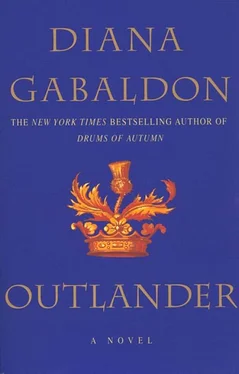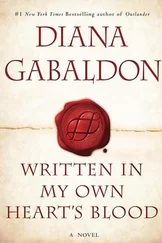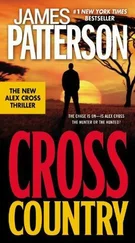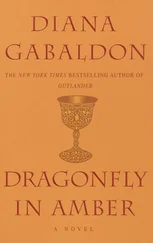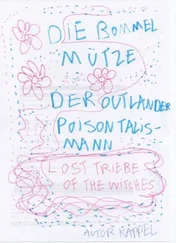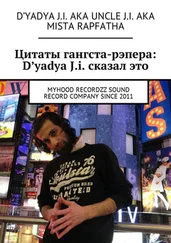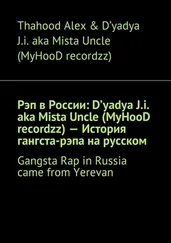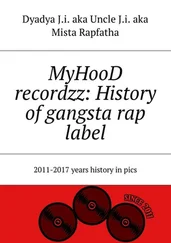“What is it?”
“The Mount of Venus, it’s called.” She pursed her thin lips primly together, though the corners turned irrepressibly up. “In a man, ye’d say it means he likes the lasses. For a woman, ’tis a bit different. To be polite about it, I’ll make a bit of a prediction for you, and say your husband isna like to stray far from your bed.” She gave a surprisingly deep and bawdy chuckle, and I blushed slightly.
The elderly housekeeper pored over my hand again, stabbing a pointed forefinger here and there to mark her words.
“Now, there, a well-marked lifeline; you’re in good health, and likely to stay so. The lifeline’s interrupted, meaning your life’s changed markedly – well, that’s true of us all, is it not? But yours is more chopped-up, like, than I usually see; all bits and pieces. And your marriage-line, now” – she shook her head again – “it’s divided; that’s not unusual, means two marriages…”
My reaction was slight, and immediately suppressed, but she caught the flicker and looked up at once. I thought she probably was quite a shrewd fortune-teller, at that. The grey head shook reassuringly at me.
“No, no, lass. It doesna mean anything’s like to happen to your good man. It’s only that if it did,” she emphasized the “if” with a slight squeeze of my hand, “you’d not be one to pine away and waste the rest of your life in mourning. What it means is, you’re one of those can love again if your first love’s lost.”
She squinted nearsightedly at my palm, running a short, ridged nail gently down the deep marriage line. “But most divided lines are broken – yours is forked.” She looked up with a roguish smile. “Sure you’re not a bigamist, on the quiet, like?”
I shook my head, laughing. “No. When would I have the time?” Then I turned my hand, showing the outer edge.
“I’ve heard that small marks on the side of the hand indicate how many children you’ll have?” My tone was casual, I hoped. The edge of my palm was disappointingly smooth.
Mrs. Graham flicked a scornful hand at this idea.
“Pah! After ye’ve had a bairn or two, ye might show lines there. More like you’d have them on your face. Proves nothing at all beforehand.”
“Oh, it doesn’t?” I was foolishly relieved to hear this. I was going to ask whether the deep lines across the base of my wrist meant anything (a potential for suicide?), but we were interrupted at that point by the Reverend Wakefield coming into the kitchen bearing the empty tea cups. He set them on the drainboard and began a loud and clumsy fumbling through the cupboard, obviously in hopes of provoking help.
Mrs. Graham sprang to her feet to defend the sanctity of her kitchen, and pushing the Reverend adroitly to one side, set about assembling tea things on a tray for the study. He drew me to one side, safely out of the way.
“Why don’t you come to the study and have another cup of tea with me and your husband, Mrs. Randall? We’ve made really a most gratifying discovery.”
I could see that in spite of outward composure, he was bursting with the glee of whatever they had found, like a small boy with a toad in his pocket. Plainly I was going to have to go and read Captain Jonathan Randall’s laundry bill, his receipt for boot repairs, or some document of similar fascination.
Frank was so absorbed in the tattered documents that he scarcely looked up when I entered the study. He reluctantly surrendered them to the vicar’s podgy hands, and came round to stand behind the Reverend Wakefield and peer over his shoulder, as though he could not bear to let the papers out of his sight for a moment.
“Yes?” I said politely, fingering the dirty bits of paper. “Ummm, yes, very interesting.” In fact, the spidery handwriting was so faded and so ornate that it hardly seemed worth the trouble of deciphering it. One sheet, better preserved than the rest, had some sort of crest at the top.
“The Duke of… Sandringham, is it?” I asked, peering at the crest, with its faded leopard couchant, and the printing below, more legible than the handwriting.
“Yes, indeed,” the vicar said, beaming even more. “An extinct title, now, you know.”
I didn’t, but nodded intelligently, being no stranger to historians in the manic grip of discovery. It was seldom necessary to do more than nod periodically, saying “Oh, really?” or “How perfectly fascinating!” at appropriate intervals.
After a certain amount of deferring back and forth between Frank and the vicar, the latter won the honor of telling me about their discovery. Evidently, all this rubbish made it appear that Frank’s ancestor, the notorious Black Jack Randall, had not been merely a gallant soldier for the Crown, but a trusted – and secret – agent of the Duke of Sandringham.
“Almost an agent provocateur, wouldn’t you say, Dr. Randall?” The vicar graciously handed the ball back to Frank, who seized it and ran.
“Yes, indeed. The language is very guarded, of course…” He turned the pages gently with a scrubbed forefinger.
“Oh, really?” I said.
“But it seems from this that Jonathan Randall was entrusted with the job of stirring up Jacobite sentiments, if any existed, among the prominent Scottish families in his area. The point being to smoke out any baronets and clan chieftains who might be harboring secret sympathies in that direction. But that’s odd. Wasn’t Sandringham a suspected Jacobite himself?” Frank turned to the vicar, a frown of inquiry on his face. The vicar’s smooth, bald head creased in an identical frown.
“Why, yes, I believe you’re right. But wait, let’s check in Cameron” – he made a dive for the bookshelf, crammed with calf-bound volumes – “he’s sure to mention Sandringham.”
“How perfectly fascinating,” I murmured, allowing my attention to wander to the huge corkboard that covered one wall of the study from floor to ceiling.
It was covered with an amazing assortment of things; mostly papers of one sort or another, gas bills, correspondence, notices from the Diocesan Council, loose pages of novels, notes in the vicar’s own hand, but also small items like keys, bottle caps, and what appeared to be small car parts, attached with tacks and string.
I browsed idly through the miscellanea, keeping half an ear tuned to the argument going on behind me. (The Duke of Sandringham probably was a Jacobite, they decided.) My attention was caught by a genealogical chart, tacked up with special care in a spot by itself, using four tacks, one to a corner. The top of the chart included names dated in the early seventeenth century. But it was the name at the bottom of the chart that had caught my eye: “Roger W. (MacKenzie) Wakefield,” it read.
“Excuse me,” I said, interrupting a final sputter of dispute as to whether the leopard in the Duke’s crest had a lily in its paw, or was it meant to be a crocus? “Is this your son’s chart?”
“Eh? Oh, why, yes, yes it is.” Distracted, the vicar hurried over, beaming once more. He detached the chart tenderly from the wall and laid it on the table in front of me.
“I didn’t want him to forget his own family, you see,” he explained. “It’s quite an old lineage, back to the sixteen hundreds.” His stubby forefinger traced the line of descent almost reverently.
“I gave him my own name because it seemed more suitable, as he lives here, but I didn’t want him to forget where he came from.” He made an apologetic grimace. “I’m afraid my own family is nothing to boast of, genealogically. Vicars and curates, with the occasional bookseller thrown in for variety, and only traceable back to 1762 or so. Rather poor record-keeping, you know,” he said, wagging his head remorsefully over the lethargy of his ancestors.
Читать дальше
